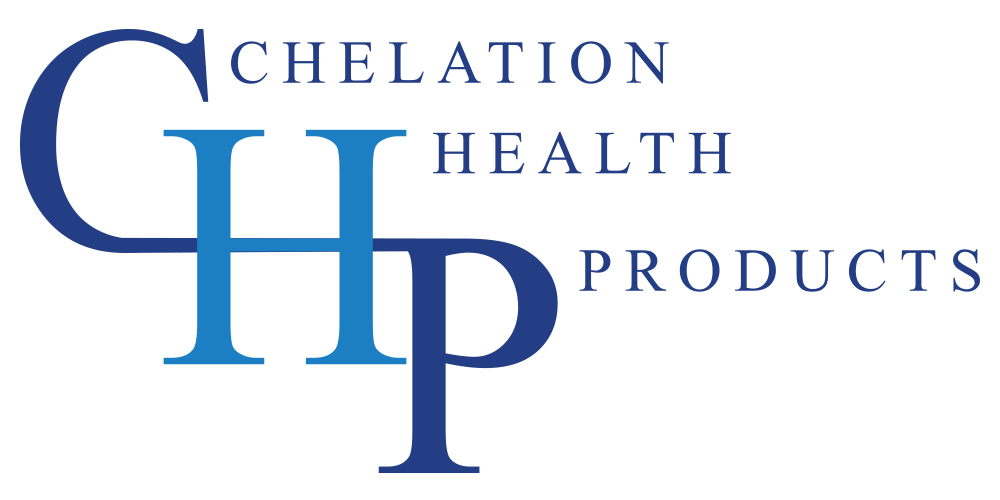Chelation Therapy
What is Heavy Metal Detox & How it Can Improve Your Health
In Trying Times, Staying Healthy Has Never Been More Important
It’s no secret, we’re living in a very trying time, filled with uncertainty, sickness, and grief. As a society we’re facing issues that we’ve never encountered before, and for many it can feel overwhelming. That’s why our team at Chelation health Products wanted to provide some guidance on a topic we know well; Ways to help keep your body as healthy as possible.
Being healthy means you’re ready to face the challenges ahead and can perform at your absolute best! When your body is in optimum condition, you can fight off illness, you have better mental clarity, increased ability to deal with stress, and more energy to last you throughout the long and tiring day.
Table of Contents
Why Heavy Metals Are Concerning
Heavy metals are a naturally found element on this planet, and in our current society are used for a variety of societal and economic purposes, from energy to commodities, and basically everything in between. Many of these heavy metals can be found in the human body, and while they’re a core component of our body functions, if found in high doses they can be very harmful to our system.
Each specific metal will have a different effect, but they can contribute to things like the aging process in the body and have been correlated with an increased risk of diseases like arteriosclerosis, dementia, and certain cancers.
We will look further into heavy metals effects on the body and discuss the possible benefits of heavy metal detox diets, potential side effects, smart safety consideration, and the evidence to support all that data.
What is a Heavy Metal Detox?
Fortunately, certain foods and medicinal therapies help to remove heavy metals from the body. Using these foods and medication for this purpose is known as a heavy metal detox. In the foods and medications used for detox, a substance known as a chelator binds to the heavy metals and transports them out of the body. This is a process called chelation.
What is Chelation Therapy?
Chelation therapy, involves a chemical substance introduced to the system, that removes heavy metals from the body. Chelation means to “grab” or “bind.” In this process, the heavy metals and minerals are “grabbed” as the chemical substance binds these specific molecules and removes them from the body. Chelation therapy typically consists of a series of intravenous administrations of the chemical substance. The most common kind of chelation therapy
is ethylene diamine tetraacetic acid (EDTA). This substance is known to remove heavy metals such as lead, iron, copper, and calcium from the blood.[1]
What is EDTA?
EDTA (ethylene diamine tetraacetic acid) is a synthesized amino acid. EDTA has been used to help treat cases of heavy metal poisoning since the early 1940s. In conjunction with treating cases of lead poisoning, physicians noticed patients who suffered from hardening of arteries exhibited improvement in circulatory functions and experienced lower blood pressure after being administered EDTA. Due to these findings, a “new” use for EDTA arose even though the FDA does not list it as an “approved” use for curing hardened arteries.
In general, this medication seeks out and sticks to metals and minerals in the bloodstream and creates a compound that your body will remove during urination. In addition to the other benefits of chelation therapy, it is also promoted as a treatment for heart disease due to the medicine grabbing the calcium deposits found in the fatty deposits (plaques) in the arteries.
What is Heavy Metal Toxicity?
Also known as heavy metal poisoning, heavy metal toxicity refers to the excessive exposure to heavy metals such as lead, mercury, arsenic, cadmium, and chromium, affecting the normal functioning of the body. In turn, this can affect the functions of organs such as the brain, the liver, and the lungs. Along with impacting the functions of crucial organs, having high levels of heavy metals can also reduce energy levels and alter blood composition.
Heavy metal poisoning can occur from sudden or severe exposure or prolonged chronic exposure. Symptoms of the poisoning may vary depending on the type of metal, amount absorbed, and the health of the person exposed.
Often, symptoms can include nausea, vomiting, diarrhea, and abdominal pain. If the exposure is long-term, there is an increased risk of significant damage to organs, an increased risk of various cancers and symptoms seen in degenerative conditions such as Parkinson’s and Alzheimer’s disease.
Examples of Common Types of Heavy Metals:
- Arsenic
- Cadmium
- Chromium
- Copper
- Lead
- Nickel
- Zinc
- Mercury
- Aluminum
- Iron
Both food and environmental-related factors can introduce heavy metal into the body. Some sources of heavy metals include:
- Soil erosion
- Mining
- Industrial waste
- Fossil fuel emissions
- Pesticides on crops
- Wastewater
- Smoking tobacco
- Chemical exposure
Who Needs Chelation Therapy?
In clinical experiences, nearly all people over the age of fifty have suffered hardening of the arteries. Chelation can help alleviate some of the debilitating symptoms of circulatory problems. People with diabetes, smokers, and patients with heart disease or those who have suffered strokes may benefit from chelation therapy.
Along with these groups, people with heavy metal poisoning can be given chelation therapy to prevent life-threatening complications.
For people who have regular, low exposure to heavy metals, a detox may be beneficial to help prevent certain chronic conditions. Research has stated that heavy metal detoxing may help prevent ailments related to the kidneys, cardiovascular system, and neurological functions.
According to some healthcare professionals, chelation therapy is a suggested treatment option for various health conditions, which are discussed in more detail below.
Cardiovascular Disease & Chelation Therapy
Evidence suggests that chelation therapy may be beneficial to people who have suffered from a heart attack. In a study funded by the National Institute of Health, researchers evaluated the effectiveness of EDTA chelation therapy on 1,708 people who had experienced a heart attack. It was found that chelation therapy resulted in a modest reduction in cardiovascular events when compared with a placebo.
Similarly, this study found an association with chelation therapy and a reduction in the risk of specific issues such as stroke and angina. Chelation therapy appeared to have an even more significant benefit in people with diabetes; the study’s authors pointed out.[2] They also noted that chelation therapy may improve health in heart attack patients by reducing oxidative stress.
Alzheimer’s disease & Chelation Therapy
Some research suggests a link between high levels of heavy metals and Alzheimer’s disease.
Many preclinical in vitro and in vivo research shows the relationship between certain heavy metals and the onset and progression of neurodegenerative conditions. These metals are critically involved in the cellular processes that dictate neuronal and brain health.
One article suggests that a therapeutic strategy that targets brain metals is well-grounded and justified. However, many scientists need more evidence to support this notion further. Research has currently shown no definitive metal-targeted pathway to be effective or optimal to treat Alzheimer’s disease.
Autism & Chelation Therapy
In addition to other conditions, some practitioners suggest chelation therapy as a treatment option for autism. This has been linked to suggestions that thimerosal in childhood vaccinations could be a factor in autism due to mercury toxicity. Thimerosal is a preservative that contains mercury that is present in certain vaccinations given in childhood.
The National Capital Poison Center states that there is no scientific evidence to support any link between thimerosal — or any childhood vaccination — and autism.
Side Effects & Safety Concerns
Some side effects related to chelation therapy include diarrhea, headache, high blood pressure, loose stools, low blood sugar, nausea, poor appetite, skin rash, and vomiting. In some instances, chelation therapy may cause serious side effects such as kidney damage and abnormally low blood levels of calcium.[3]
In addition to these symptoms, chelation therapy may remove calcium from healthy bones and other tissues. Children, pregnant women, and people with heart or kidney failure should avoid chelation therapy due to the risks posed by certain side effects. Chelation can be dangerous and even fatal in rare cases. Do not attempt heavy metal detoxes without the supervision of a healthcare professional.
EDTA Chelation is Effective to Remove Toxic Heavy Metals
Chelation EDTA therapy is an effective way to remove the toxic heavy metals in our bodies. If you have been exposed to high levels of mercury or other heavy metals, make an appointment with your doctor to discuss possible treatment options. Your doctor will order a blood test to determine if chelation therapy is the best course of action.
Always tell your doctor when using an alternative therapy or if you are considering combining an alternative therapy with conventional medical treatments. It is not safe to forgo your conventional medical treatment and rely solely on alternative therapy without consulting your doctor first.


